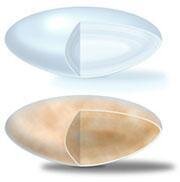What Are Cataracts?
Cataract is a clouding of the eye’s lens. When we look at something, light rays travel into our eye through the pupil and are focused through the lens onto the retina, a layer of light-sensitive cells at the back of the eye. The lens must be clear in order to focus light properly onto the retina. If the lens has become cloudy, this is called a cataract.
Vision problems with cataracts
If your vision has become blurry, cloudy or dim, or things you see are not as bright or colorful as they used to be, a cataract may have developed in one or both of your eyes. Many people say that their vision with cataracts is similar to the effect of looking through a dirty car windshield.
As a cataract slowly begins to develop, you may not notice any changes in your vision at first. But as the cataract progresses, you may begin to find that it interferes with your daily activities. Performing a complete eye exam, your ophthalmologist can tell you whether cataract or another problem is the cause of your vision loss.
While cataracts are one of the most common causes of vision loss, especially as we age, they are treatable with cataract surgery. Since most cataracts are part of the normal aging process, they cannot be reversed. There are no medications or eye drops that will make cataracts go away—surgery is the only treatment.
A cataract may not need to be removed right away if your lifestyle isn’t significantly affected. In some cases, simply changing your eyeglass prescription may help to improve your vision. Contrary to popular belief, a cataract does not have to be “ripe” to be removed. However, once you are diagnosed with a cataract, your ophthalmologist needs to monitor your vision regularly for any changes.
Cataract surgery for clearer vision
When a cataract causes bothersome vision problems that interfere with your daily activities, your ophthalmologist may recommend surgery to remove the cataract. With cataract surgery, your eye’s cloudy natural lens is removed and replaced with a clear artificial lens implant (called an intraocular lens or IOL).
You and your ophthalmologist can discuss the cataract surgery procedure, preparation for and recovery after surgery, benefits and possible complications of cataract surgery, cataract surgery costs and other important information. Together, you can decide if cataract surgery is appropriate for you.


